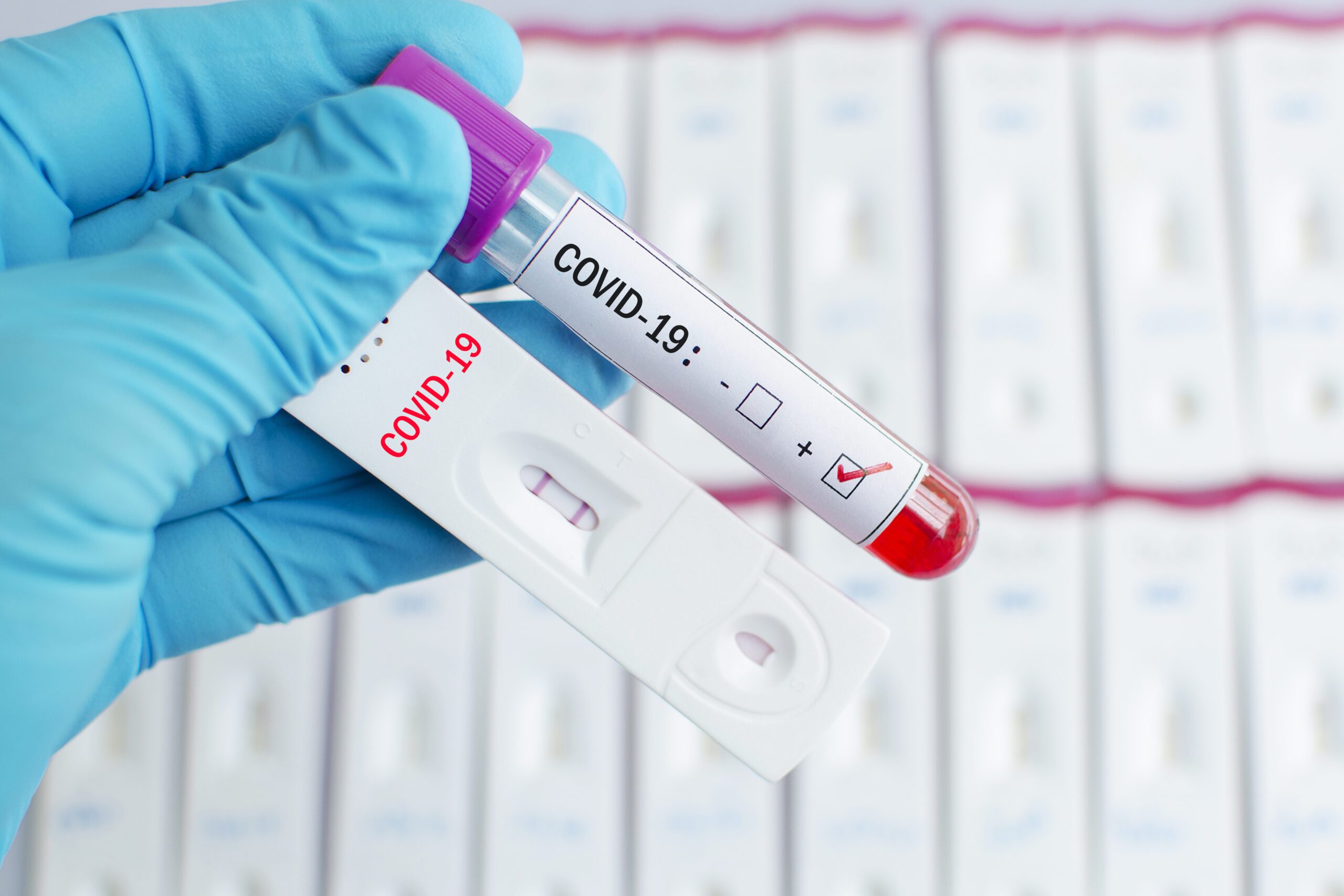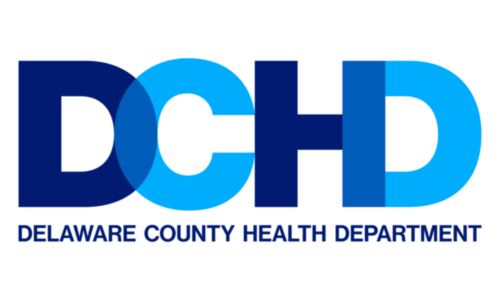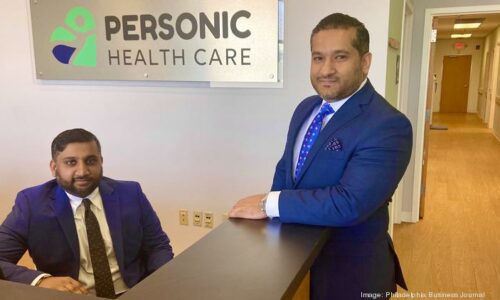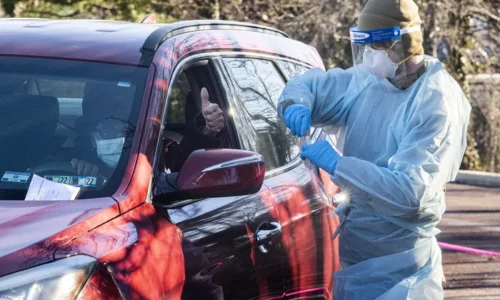U.S. Covid Response Showing Cracks as Congress Delays Funds
Personic Health Care has been providing free Covid testing for uninsured families in Philadelphia and northern Virginia throughout the pandemic, thanks in part to federal support.
But earlier this month when the White House said that the U.S. doesn’t have the funds to cover those costs, it put Personic, a mid-sized patient-monitoring and telehealth company, in a precarious spot. The company wants to continue offering the free tests, but that’s not sustainable through another surge of infections, said Azmat Husain, its founder and chief medical officer.
“We can’t stomach turning them away,” he said. “Especially this next wave that we’re expected to have, we made a conscious decision to continue to do it even though there’s no funding source.”
Cracks in Covid programs across the U.S. are starting to show. Lawmakers from both parties have been slow to allocate new money for the effort as infections have dropped to their lowest rate since July. After the Biden administration failed to get $22.5 billion in emergency Covid funds, House Speaker Nancy Pelosi attempted to secure over $15 billion as part of a broader spending package earlier this month.
Winding Down
Rank-and-file Democrats objected to the legislation clawing back previously appropriated pandemic aid for state and local governments and businesses. Republicans have insisted on at least partially offsetting the proposed spending with other cuts, and Senate Democrats have been working with Utah Republican Mitt Romney to broker a deal.
While some states had already begun winding down Covid testing, vaccination and treatment operations due to slow demand, the lack of funding is already starting to show. New Hampshire announced the permanent closure of all state-managed Covid vaccination sites at the end of March. New York’s Covid response is also suffering from the funding shortfall, and it should be fixed “ASAP,” Manhattan Borough President Mark Levine said Wednesday in a tweet.
The White House announced this month that it would phase out a program that gave the government the ability to cover Covid tests, treatments and vaccines for uninsured Americans. Roughly 28 million Americans, or 8% of the population, were uninsured at some point during 2020, according to the most recent Census.
President Joe Biden’s Covid response team warned the lack of funding could leave the country ill-prepared to purchase fourth-dose boosters expected to be cleared this week. White House Covid coordinator Jeff Zients said the consequences will be counted in lost lives.
Insufficient Capacity
“Failure to invest now will leave us with insufficient testing capacity and supply if we see another surge in cases and demand for testing increases once again,” he said last week in a briefing. “That should not be allowed to happen.”
Communities of color made up a disproportionate percentage of Covid cases in the U.S. Losing access to these critical resources is going to widen health inequities that we’ve seen throughout the pandemic, said Michele Calvo, a program officer for Covid-19 Vaccine Action Collaborative at the New York Academy of Medicine.
“People who have the resources to pay for at-home tests will be able to get them for themselves — and low-income communities, undocumented folks, Black and Latinx folks in New York are going to just lose access,” Calvo said.
As highly transmissible omicron wanes, the U.S. is shifting away from emergency measures, with many states dropping masking requirements and other measures to stem spread. Looming in the wings, however is its cousin, BA.2, that’s sparking a resurgence in Germany, the U.K. and other countries.
The omicron subvariant is already the leading cause of cases and heading toward U.S. dominance, although numbers remain low. Analyses of wastewater that can show the virus’s presence before infections burgeon also suggest rising incidence in many regions.
Closing Sites
Meanwhile, the attrition is growing. CDR Health, a unit of Florida-based emergency management services provider CDR Maguire, shut down all but one of its monoclonal antibody treatment sites last week. Earlier, CDR closed all its 30 free testing sites that provided diagnostic services to as many as 15,000 people a day during Covid surges.
In addition to its impact on the uninsured, the loss of funding for tests will obscure the spread of the virus and perhaps impair the ability to track variants, said Tina Vidal-Duart, CDR Health’s head. That could also affect the preparation for treatment and hospital readiness, she said.
“Mass testing allowed us to forecast rising positivity rates and surges two to three weeks before they happened,” she said. “Lack of funding for these sites will make it difficult to prepare and track for future surges.”
Flagging patient demand spurred Garner Health, a division of Garner Environmental Services Inc., to suspend Covid testing, vaccination and treatment in Florida. After administering more than 30,000 monoclonal antibody infusions from August and December last year, treatments have dropped significantly in recent weeks, said Danny Maldonado, Garner’s senior project manager. This month the company treated fewer than 50 patients in Florida.
Broader Community
Still, Garner will resume operations if BA.2 spurs a new wave of Covid-19 infections, President John Temperilli said.
“Having stood down at this point, we are absolutely on the precipice of being ready to stand right back up,” he said.
The American Hospital Association also asked Congress for immediate additional support to face persistent Covid challenges.
“While the nation remains weary and is eager to move past this pandemic, the virus continues to evolve and pose a threat to our nation’s health-care system,” the nonprofit representing thousands of hospitals and health systems said Thursday in a statement.
Now is not the time to be pulling back on something as crucial as testing, said Husain, the Personic medical chief.
“We are so unprepared. We do not have a mechanism to test or vaccinate the most disadvantaged community,” he said. “The way we combat Covid-19 is not just by protecting ourselves and our families, it’s by decreasing Covid-19 in the broader community.”
— Credit goes to Fiona Rutherford, with assistance from Alicia Diaz, Justin Sink, and Josh Wingrove.



